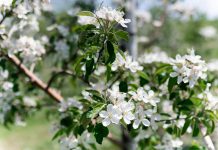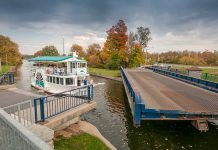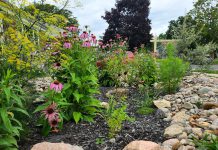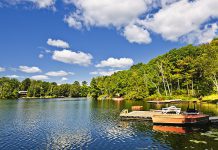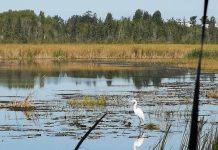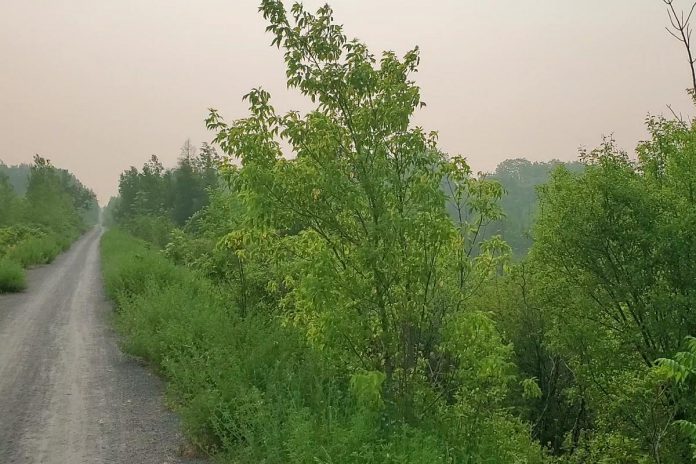
The recent smoke-filled days have left us in a daze, questioning why wildfires feel uncontrollable and more widespread than before.
The smoke that we experienced in and around June 7th, Clean Air Day, and on many days since, has been a heated topic of discussion. It is important to understand and address the wildfires behind the smoke, and the way that climate change is contributing to these fires.
Fires burning in our forests and our grasslands are not a new phenomenon. In fact, they can be prescribed.
On June 21st, National Indigenous Peoples Day, Alderville Black Oak Savannah posted about a traditional burning practice held at Black Oak Savannah. In this post, they reflect on the connection between fires, ecosystems, and Traditional Ecological Knowledge.
“Each year, the team continues traditional burning practices in the form of prescribed restoration burning,” Alderville Black Oak Savannah wrote in their post. “Fire is central to countless Indigenous groups, across Turtle Island, and around the globe.”
“[Fire] is one of the four elements necessary for life on earth. The flames of the fire burn orange; another reminder that Indigenous communities and fire have always been interwoven. Today we reflect on the current state of wildfires across Turtle Island and how this land is affected by climate change each day … How can we improve our actions for both our neighbours and our earth?”
Reflecting on that question is part of this call to action.
We know that in particular ecosystems, fire can be a benefit to plant species with certain adaptations. It may seem counter-intuitive, but fires are natural and many ecosystems require fires to clear out organic material and promote regeneration.
Wildfires can be crucial to ecosystem stability, but under certain circumstances, can be out-of-the-ordinary.
As a result of climate change, Canadian ecosystems are becoming drier and the severity and length of wildfire season we are presently seeing is new.
The warmer, drier climate that Canada is moving toward will further increase the risk of drought events and vegetation flammability, which are major drivers of wildfires.
Not every individual wildfire can be attributed to climate warming, but according to a Climate Change and Land report from the International Panel for Climate Change (IPCC) in 2019, “future climate variability is expected to enhance the risk and severity of wildfires in many biomes”.
The IPCC notes that fires in the boreal forest biome will increase in size and frequency. Canada’s land mass has 60 per cent boreal zone, giving some perspective to how uncontrolled wildfires can impact the country.

Here in Peterborough, we may not have felt the burn of wildfires, but we do experience poor air quality resulting from smoke.
“Wildfires are considered a public health risk in Canada, due to their impacts on physical health, mental health, and well-being,” states the Government of Canada’s June 2023 public health risk profile of wildfires in Canada.
Uncontrolled wildfires and their smoke will disproportionately impact equity-deserving populations and marginalized people. Across Canada, individuals displaced by wildfires, individuals without housing, and individuals with health concerns will see greater impacts to their health, well-being, and social stability.
Although wildfires can seem to be uncontrollable at times, Canadians can help mitigate the impacts of climate change and decrease the likelihood of even more severe climate events by acting to reduce our emissions.
Our governments have an important role to play by enacting policy that meet our emissions reductions targets, and ensure a healthy environment, now and in the future.
In 2019, Peterborough City Council declared a climate emergency and renewed their local commitment to enact strategies that significantly reduce the city’s corporate emissions and emissions community-wide.
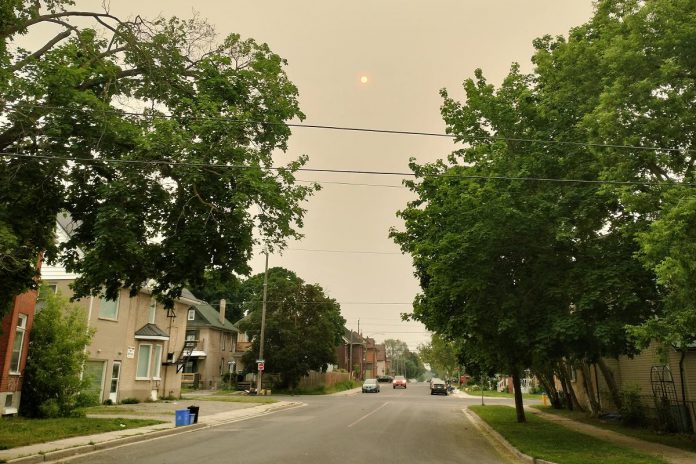
In the declaration, Peterborough city council identified the need to achieve a target of 45 per cent greenhouse gas emissions reduction by 2030 below 2011 levels and net-zero by 2050.
As we see fluctuating smoke days in the Peterborough and the Kawarthas, perhaps you can help decrease our local greenhouse gas emissions.
While enjoying the great outdoors this summer, you can limit unnecessary fire use. Even outside of risky periods like a fire ban, personal fires create emissions.
Plant drought-tolerant native plants or in your neighbourhood — these use less water and can handle warmer, drier seasons.
Use active travel methods like biking, rolling, or walking to cut down on driving-related emissions.
Replace indoor appliances that use natural gas with electric appliances.
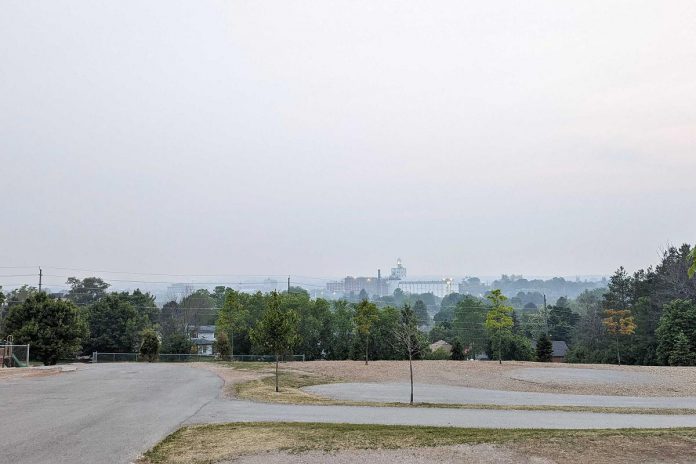
Assess the carbon emissions of your business and identify ways to decrease the environmental impact of your operations.
Even though it may seem daunting, there are many ways we can keep our emissions low and mitigate the worst impacts of climate change.
Together we can look through the smoke and act to create a clearer future.





